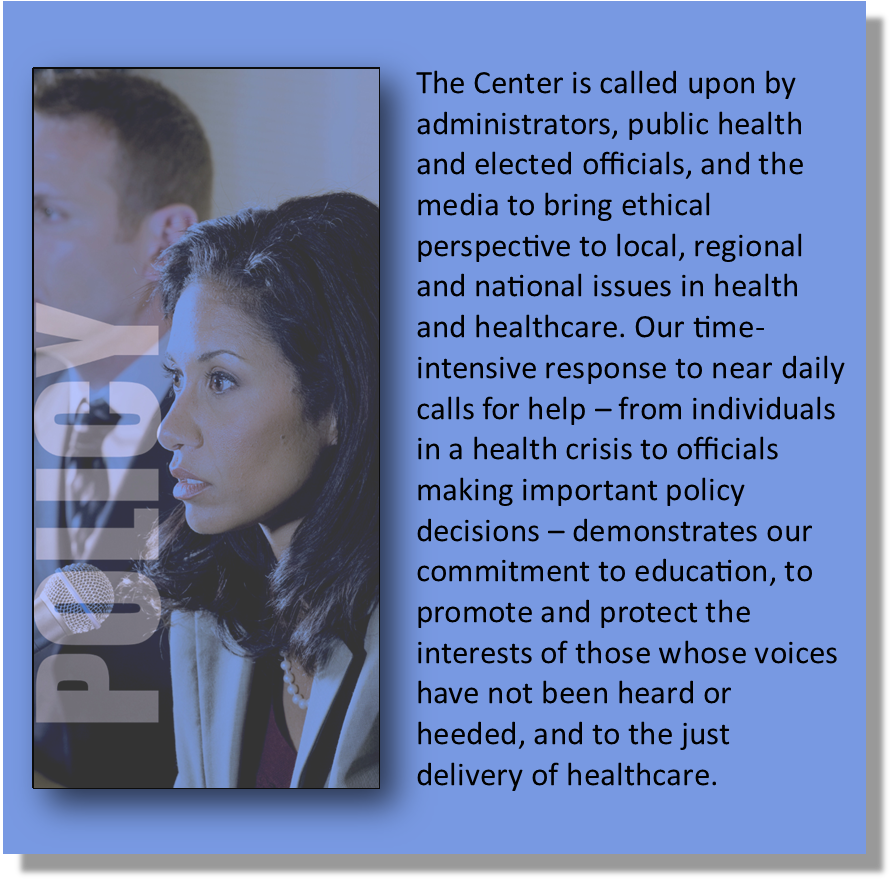Healthcare Workplace Violence An Appeal for Proven Preventive Measures
By Tarris Rosell, PhD, DMin
Rosemary Flanigan Chair, Center for Practical Bioethics
In this blog, Tarris (Terry) Rosell, PhD, DMin, describes the guidance and thought leadership he has provided to the Kansas House Judiciary Committee on proposed legislation to address healthcare workplace violence.

More than eight years ago, at the request of then Kansas State Representative Barbara Bollier, several colleagues and I drafted expert testimony on proposed healthcare workplace violence legislation. It was perceived to address a crucial issue for healthcare workers who experience workplace violence at rates several times that of any other industry. So legislation was warranted, but of the sort that is apt to be effective and just, which House Bills 2526 (2014) and 2313 (2015) were perceived not to be.
Those bills failed in Committee despite healthcare worker proponents pleading for something to be done. Similar bills were reintroduced in subsequent years, each still grounded in misguided deterrence theories which have not demonstrated positive effects against healthcare worker violence. Yet another bill was introduced in January 2023 as Kansas House Bill 2023. It would create the new crime of “interference” with healthcare work and workers, along with increased penalties and jail time for battery or aggravated battery. Deterrence methods continue to be promulgated as the answer to a serious problem that has only gotten worse.
While well-intended relative to a shared goal of reducing violence, this bill seems to me as still falling short, as unlikely to produce any better results than have previous deterrence-based approaches. Per OSHA data and anecdotally also, approximately 80% of violence against healthcare workers is perpetrated by patients. Very often these patients’ aggression is due to dementia, psychoses, substance induced altered mental status, and other acute or chronic mental health issues. They typically lack decisional capacity, hence don’t know what they’re doing. HB 2023 deterrence legislation aims only at a smaller percentage of healthcare workplace violence that is done “knowingly.” For that sort of perpetrator, this sort of legislation is warranted and might have some small impact on a huge problem. But a small impact is not enough.
My “neutral” written and verbal testimony to the House Judiciary Committee on January 23, 2023, calls upon Kansas legislators to do much more than what is proposed. HB 2023 aims at the correct goal but by means that have not proven effective overall, given that it addresses only a fraction of violent incidents and perpetrators. Even for those, the effectiveness of deterrence methods is questionable at best. Other more proven preemptive measures should be added with a fiscal component: mandates and funding for de-escalation training, behavioral response teams, internal security, better reporting and follow up systems, etc.
Of particular importance, and even further upstream, would be funding for improved community based mental health care resources and access.
My ethics testimony affirms the intent and asks for more. Much more than relatively ineffective deterrence methods are needed on behalf of our healers who deserve better protections and for healthcare institutions that may need better funding in order to implement protective measures that might actually work.



